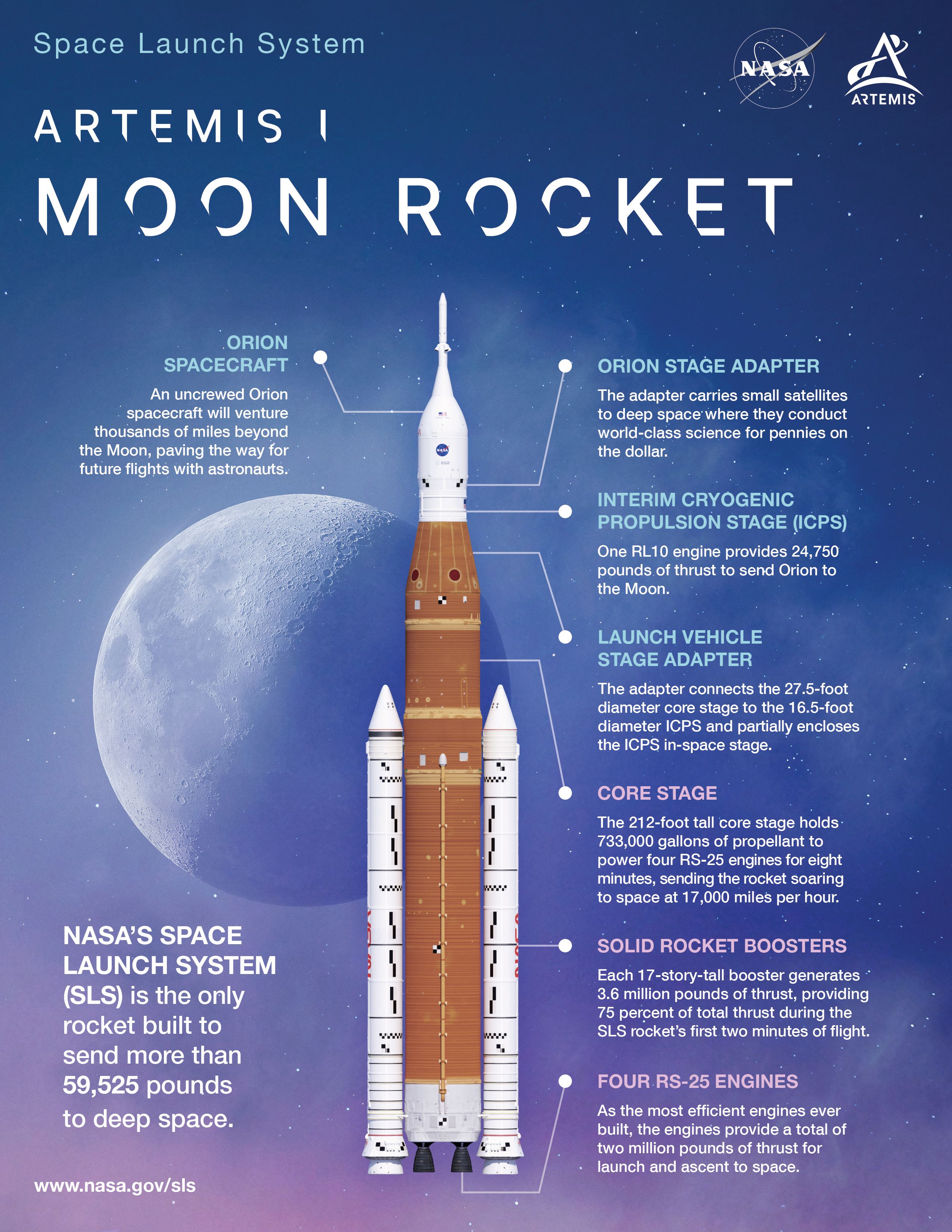
By clicking “Accept All Cookies”, you agree to the storing of cookies on your device to enhance site navigation, analyze site usage, and assist in our marketing efforts Cookies Policy.

Nasa Artemis-1 Launch: NASA is set to launch the most powerful rocket ever built on a roughly 40-day trip around the moon and back on Monday. Named Artemis 1, the mission is the first of three planned Artemis missions that will culminate in 2025 with astronauts setting foot on the moon for the first time in 50 years.
Artemis 1, comprising Orion, a six-person deep-space exploration capsule, atop a 98m (322ft), 2,600-tonne (2,875-ton) Space Launch System (SLS) megarocket, is scheduled for its maiden liftoff at 8.33am ET (1.33pm UK time) from the Cape Canaveral launch complex.

The Space Launch System: NASA’s Artemis I Moon Rocket

Artemis I Moon Rocket Arrives at Launch Pad for First Time

Artemis 1, comprising Orion, a six-person deep-space exploration capsule, atop a 98m (322ft), 2,600-tonne (2,875-ton) Space Launch System (SLS) megarocket, is scheduled for its maiden liftoff at 8.33am ET (1.33pm UK time) on Monday.
A live feed of the mission is below from Nasa with the footage as and when it happens.
“We’re going to stress it and test it. We’re going to make it do things that we would never do with a crew on it in order to try to make it as safe as possible,” NASA Administrator Bill Nelson told The Associated Press.
The spacecraft will travel 40,000 miles beyond the far side of the moon and stay in space longer than any human spacecraft has without docking to a space station. The capsule is expected to splash down in the Pacific Ocean in October.
For breaking news and live news updates, like us on Facebook or follow us on Twitter and Instagram. Read more on Latest Science and Technology News on India.com.